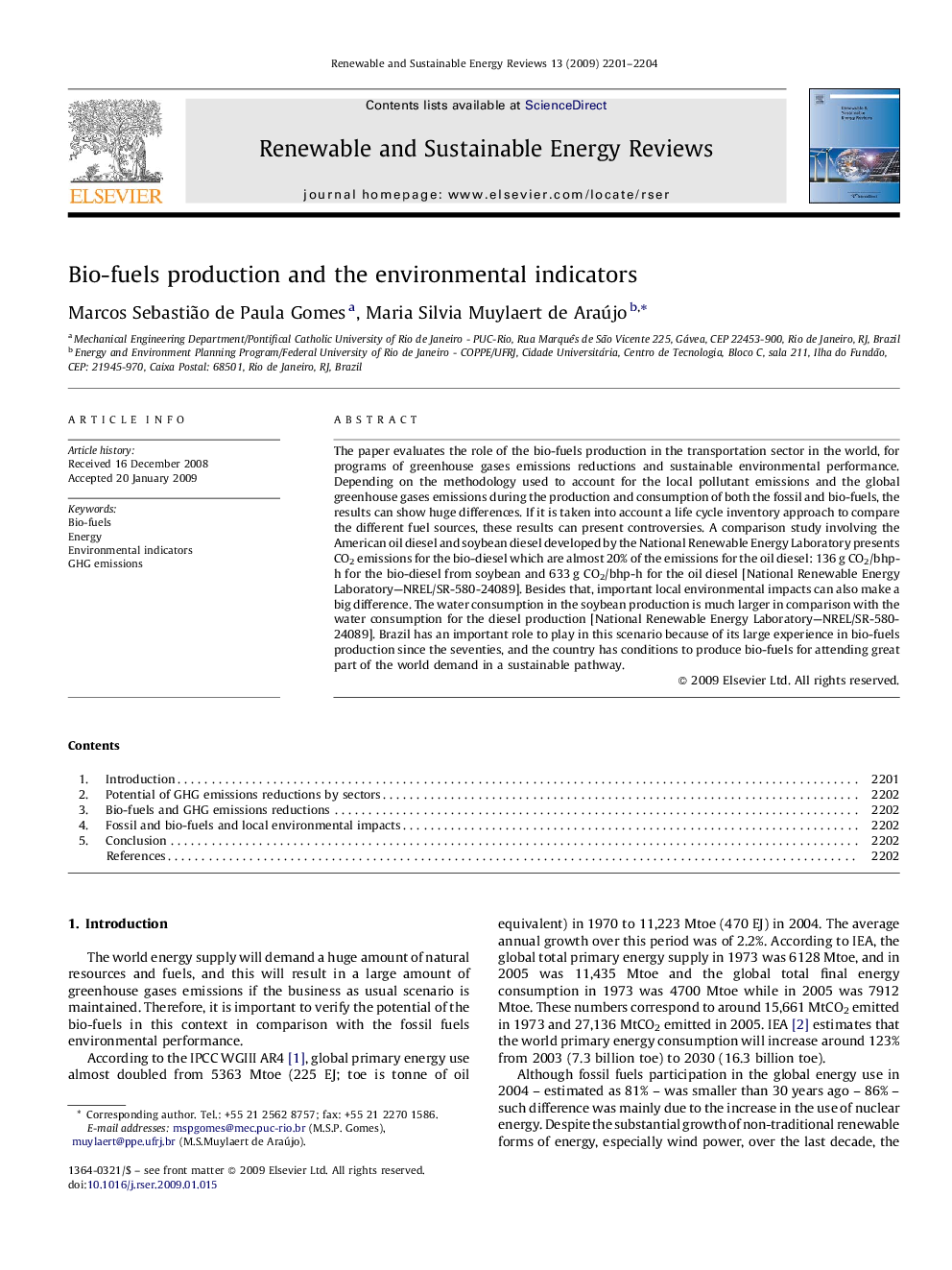| Article ID | Journal | Published Year | Pages | File Type |
|---|---|---|---|---|
| 1752033 | Renewable and Sustainable Energy Reviews | 2009 | 4 Pages |
The paper evaluates the role of the bio-fuels production in the transportation sector in the world, for programs of greenhouse gases emissions reductions and sustainable environmental performance. Depending on the methodology used to account for the local pollutant emissions and the global greenhouse gases emissions during the production and consumption of both the fossil and bio-fuels, the results can show huge differences. If it is taken into account a life cycle inventory approach to compare the different fuel sources, these results can present controversies. A comparison study involving the American oil diesel and soybean diesel developed by the National Renewable Energy Laboratory presents CO2 emissions for the bio-diesel which are almost 20% of the emissions for the oil diesel: 136 g CO2/bhp-h for the bio-diesel from soybean and 633 g CO2/bhp-h for the oil diesel [National Renewable Energy Laboratory—NREL/SR-580-24089]. Besides that, important local environmental impacts can also make a big difference. The water consumption in the soybean production is much larger in comparison with the water consumption for the diesel production [National Renewable Energy Laboratory—NREL/SR-580-24089]. Brazil has an important role to play in this scenario because of its large experience in bio-fuels production since the seventies, and the country has conditions to produce bio-fuels for attending great part of the world demand in a sustainable pathway.
